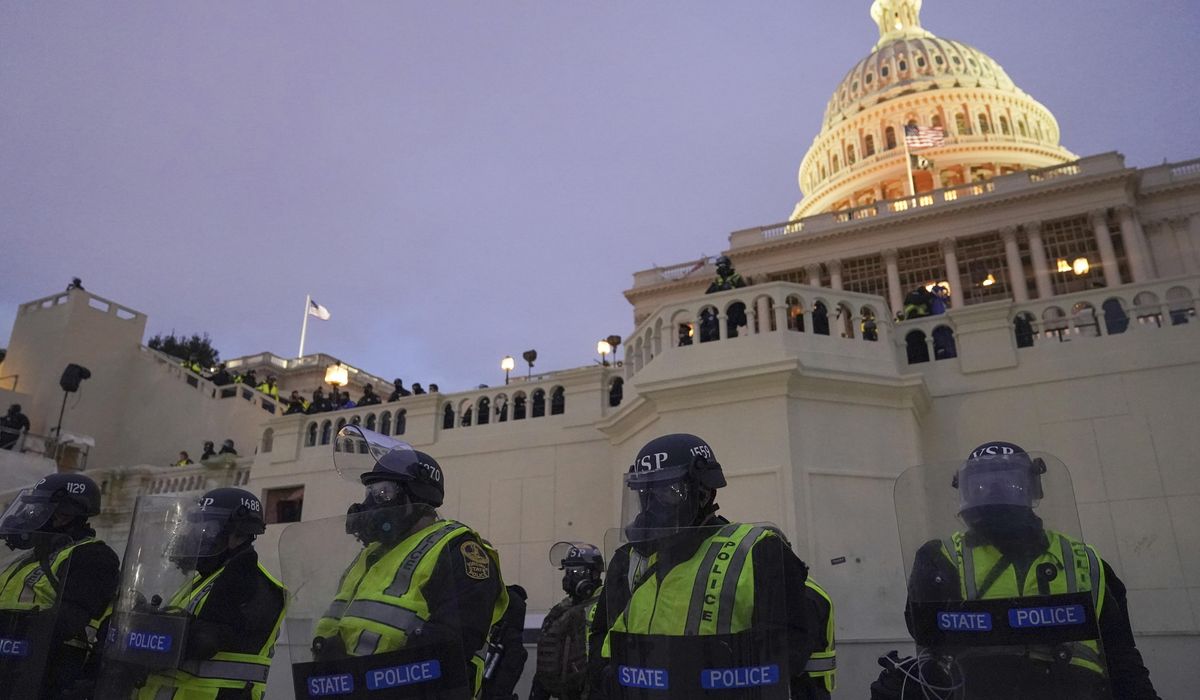
The House Rules Committee on Tuesday advanced two measures aimed at bolstering security at the U.S. Capitol in the aftermath of the Jan. 6 insurrection.
The panel advanced a $1.9 billion emergency spending bill that would pay the costs of enhanced security on Capitol Hill and a separate measure that would create a commission to investigate the Capitol attack.
Both measures passed on 9-4 party-line votes, with all four Republicans on the panel opposing the measure. The measures now head to a full vote on the House floor as early as Wednesday.
GOP opposition to the bills could create big obstacles for the Democrats, who control both chambers. If Democrats can’t muster enough support from Republicans, the security bill will likely have to be renegotiated in the Senate before it can be sent to President Biden’s desk for approval.
The bill that would create a bipartisan commission to probe the failures that led to the Capitol riot also faced stiff opposition from Republicans following the lead of House Minority Leader Kevin McCarthy of California.
Mr. McCarthy said in a statement Tuesday that the commission would be too narrowly focused and duplicate the efforts of other investigations already underway.
House Republicans criticized several portions of the $1.9 billion spending package. They objected to the creation of a quick reaction force that would be under the control of the District of Columbia National Guard instead of Congress and some of the security costs.
They also blasted Democrats for moving forward without Republican support and an agreement on the cost of security needs.
“It is truly unfortunate that in a matter of this gravity the Democrats were not interested in an agreement,” said Rep. Tom Cole, Oklahoma Republican and the ranking member on the panel.
Rep. Kay Granger, Texas Republican, also accused the Democrats of refusing to work with Republicans to create a bipartisan plan.
“By choosing to forge ahead with this bill today, I’m concerned that my colleagues are more interested in making headlines instead of headway,” she said during the hearing.
Democrats, however, insisted that the Republican proposal of a $2.4 billion bill, which would have allocated half the funds to the Department of Defense’s COVID-19 response efforts, was not made in good faith.
Rep. Rosa DeLauro, Connecticut Democrat, said the GOP plan “was not a serious proposal in terms of looking at what we need to move forward on, in terms of security at the Capitol.”
Republicans predicted the bill would die in the evenly divided Senate, where at least 10 GOP lawmakers would need to switch sides to move the legislation forward.
“I don’t think they are prepared to pass this, and we are losing an opportunity which makes this slower,” Ms. Granger said.
The measure to create a bipartisan commission was also received with equal bickering.
Republicans demanded the commission’s scope be expanded to other instances of violence.
Mr. Cole requested that it look more broadly at other political violence, including last summer’s social justice protests and the 2017 shooting of Rep. Steve Scalise, Louisiana Republican, during a practice for the congressional baseball game.
Rep. Jim McGovern, Massachusetts Democrat and committee chairman, insisted the commission wouldn’t “engage in a partisan fishing expedition.”
The bill would establish a 10-member bipartisan commission to investigate the causes of the attack and the security failures that may have caused the information to be missed. It would be modeled after the investigative panel that reviewed the causes of the Sept. 11, 2011, terror attacks.
